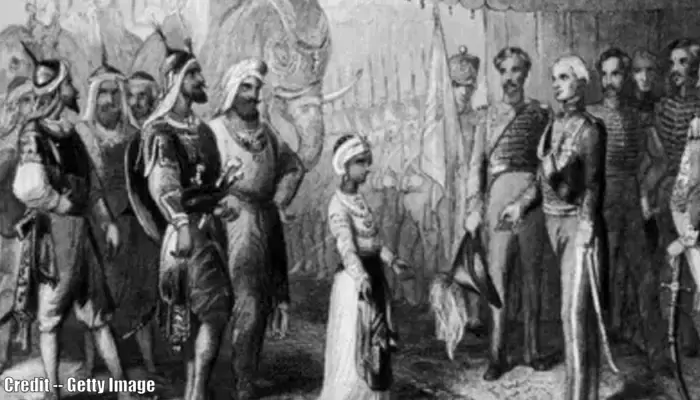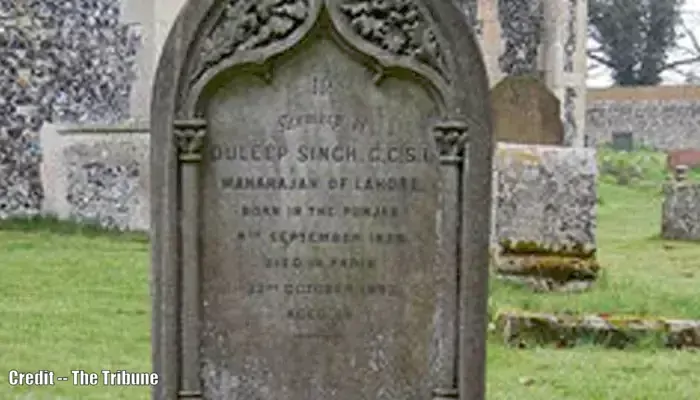
From Palace to Paris: Duleep Singh's forgotten fight for India's freedom.
He was born to rule but raised to forget. Duleep Singh, the last Maharaja of the Sikh Empire, lost his kingdom at just ten. Taken from Punjab and re-planted into British aristocracy, he grew up sipping English tea, hunting foxes, and posing for portraits. To the world, he was the perfect imperial prince. But behind those polished smiles was a man haunted by his past, and determined to rewrite his future.
After the British annexed Punjab in 1849, the young Duleep Singh was taken to England. Queen Victoria doted on him. He converted to Christianity, received a pension, and lived in luxury. But inside, something was broken. He had lost his mother, his land, and his faith. When he reunited with his mother in 1861, she opened his eyes to what had been taken. From that point on, the spell of empire began to crack.

In 1886, Duleep Singh made a bold move. He renounced Christianity and returned to Sikhism, not just in spirit but as an act of rebellion. He had hoped to sail back to India to rally his people, but the British government stopped him mid-journey. Frustrated, he turned to Europe. Paris became his new base. Duleep wasn't just an ex-royal here; he was a man plotting a revolution. He wrote, "I am determined to recover my rights and kingdom. I was made a Christian by force; now I return to the faith of my ancestors."

In Paris, Duleep Singh started meeting strange new allies. Among them were Irish nationalists—especially members of the Fenian Brotherhood—fellow enemies of the British crown. They found common ground in their shared colonial pasts and dreams of liberation. Duleep believed Irish soldiers serving in the British Army could help trigger a rebellion in India. The plan was simple in theory but wild in scale: team up with Tsarist Russia, sneak into India through Afghanistan or Kashmir and spark a coordinated uprising with princely allies, Sikh leaders, and disgruntled sepoys.
Duleep Singh didn't just dream, he acted. He wrote personal letters to Tsar Alexander III of Russia, hoping to enlist support for an invasion of India. The idea played into Russia's ongoing "Great Game" with Britain, a cold war fought through espionage and proxy powers in Central Asia. Duleep also drafted passionate manifestos addressed to Indian princes and Sikh groups, calling for revolt and unity. He promised that India's hour of freedom was near. Russian officials listened politely but gave no clear commitment. Still, Duleep clung to hope. The flame of rebellion refused to go out.
But the British knew. Their intelligence network was watching. Intercepted letters, bugged conversations, and undercover agents tracked his every step. His Indian emissaries were arrested in Bombay and Lahore. France and Russia, wary of diplomatic friction, began to distance themselves. Even his cousin and closest aide, Thakur Singh Sandhanwalia, died mysteriously in Lahore while delivering messages to Sikh leaders. British officials quietly ensured that no princely state responded. One by one, the pillars of his grand conspiracy collapsed. The Maharaja was left alone, sketching revolution from the grey cafés of Paris.
Duleep Singh never returned to India. He died in 1893, far from Punjab, and was buried in an English churchyard in Elveden. The British buried him like a gentleman, not a rebel. His tombstone bore no sign of the warrior he once tried to be. But his story didn't end there. The secret files on his plans were kept under wraps for decades. Only now do we see how close he came to lighting the first real fire of India's independence movement—decades before the 1857 uprising found its voice in popular memory.
Duleep Singh's plan may have failed but was born from courage. He could have lived out his days in quiet comfort. Instead, he chose defiance. He sought unlikely allies, challenged an empire, and tried to reclaim what had been stolen from him as a boy. Some Indian revolutionaries, including members of the Ghadar Party and early Congress radicals, would later rediscover his letters and regard him as a forerunner of resistance.
He died in silence—but not in vain. His story is a reminder: revolutions don't always begin with armies. Sometimes, they begin with a prince who refuses to bow.